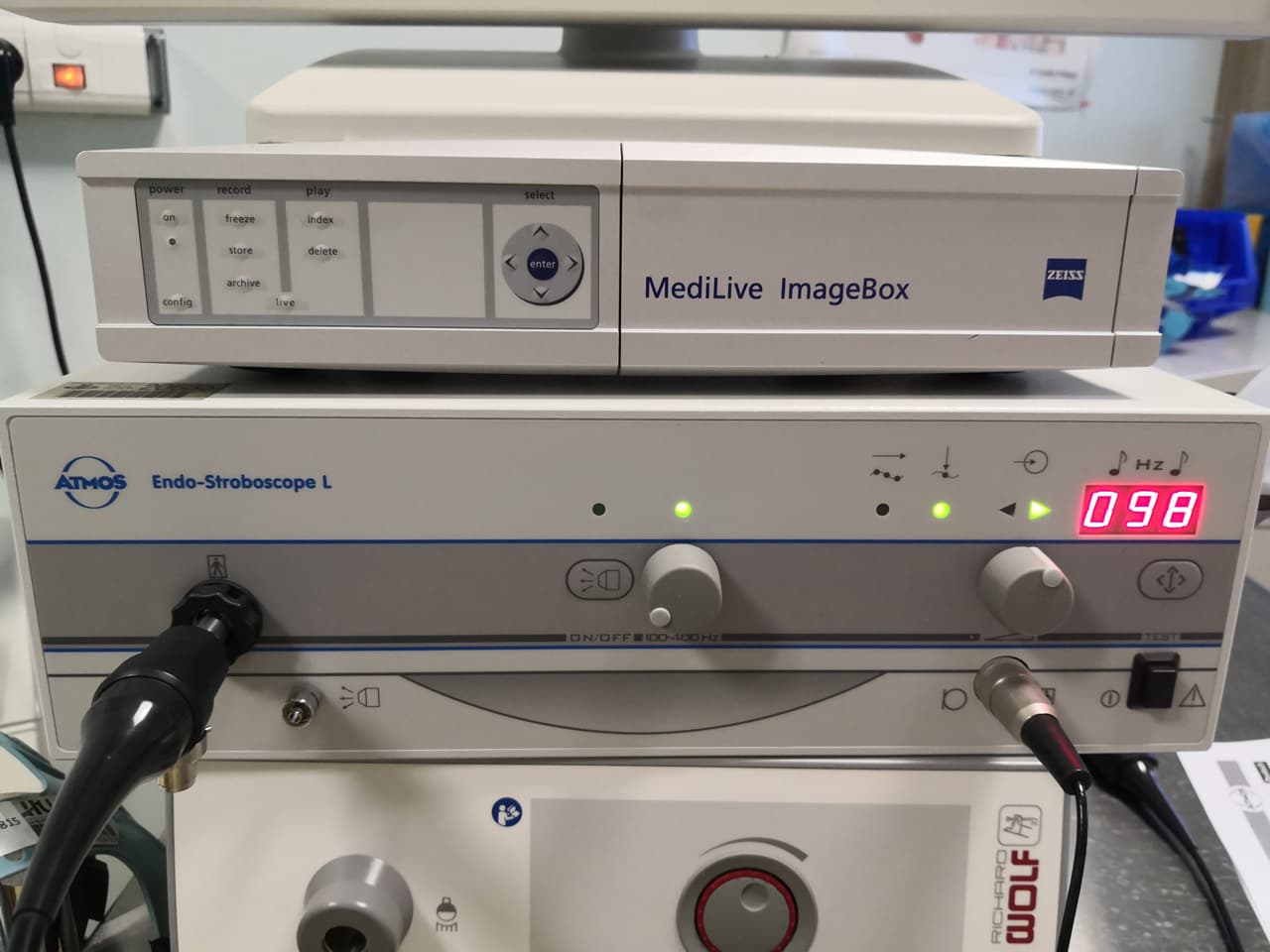Voice assessment
Why ?
- If you feel that you are losing your voice (aphonia)
- If you have a persistent voice change lasting more than 15 days (dysphonia)
- If you have recurrent voice changes (repeated dysphonia over time)
For whom?
ADULTS:
- Physical factors can influence the voice: tobacco, alcohol, toxic products, acid reflux, posterior nasal discharge (rhinorrhea) due to irritation and edema of the vocal cords.
- Mechanical factors can influence the voice : vocal forcing (intensive and inappropriate use of the voice) in a professional context : teacher, singer, actor, salesman, presenter, radio host or in a personal context: singing, karaoke, a benign or malignant tumor (in, above or below the vocal cords).
- Psychological factors can influence the voice and even cause intermittent aphonia.
CHILDREN:
- Physical factors can influence the voice: acid reflux posterior nasal discharge (rhinorrhea) due to irritation and edema of the vocal cords.
- Mechanical factors can influence the voice : vocal forcing: singing, shouting

Where and How?
The voice assessment may involve several stages, sometimes involving a subspecialist : the phoniatrician, who is usually also an ENT specialist in France:
- The interview includes an historical of surgery (thyrioïd), voice habits, exposure to toxic substances, reflux symptoms, diet (peppers, dairy products, tomatoes, chocolate, tea, coffee etc.) and other factors favoring reflux.
- Nasofibroscopy directly explores the nose, throat and, in particular, the larynx and vocal cords. It can be used to assess vocal cord mobility ( by pronouncing an aaaaa), the presence of polyps, cysts, nodules, malignant tumors, and more simply, edema.
- Video stroboscopy enables precise analysis of the vibratory capacity of the vocal cords, particularly in cases of dysphonia with a normal nasofibroscopic appearance. It is based on slow-motion observation of the very rapid movement of the vocal cords, thanks to the effect of the stroboscope, which “breaks down” the movements (like the movements of dancers illuminated by a pulsed light known as stroboscopy) by pronouncing an eeeee (iiiiiiiiii in French).
Complementary assessment
In addition to the voice assessment described above, your ENT specialist may decide to carry out the following procedures, depending on the case :
- Gastroesophageal fibroscopy
- A CT scan of the neck or thorax, and other complementary tests (MRI, PET scan, etc.) especially in cases of vocal cords paralysis
- A biological blood test that varies according to the medical context.
ENT consultation for a voice check-up in La Roche-sur-Yon, Vendée
Dr Antoine Delagranda will be happy to answer any questions you may have about a voice check-up. Dr Delagranda is a specialist in ENT surgery at the Clinique Saint Charles in La Roche-sur-Yon in the Vendée.

